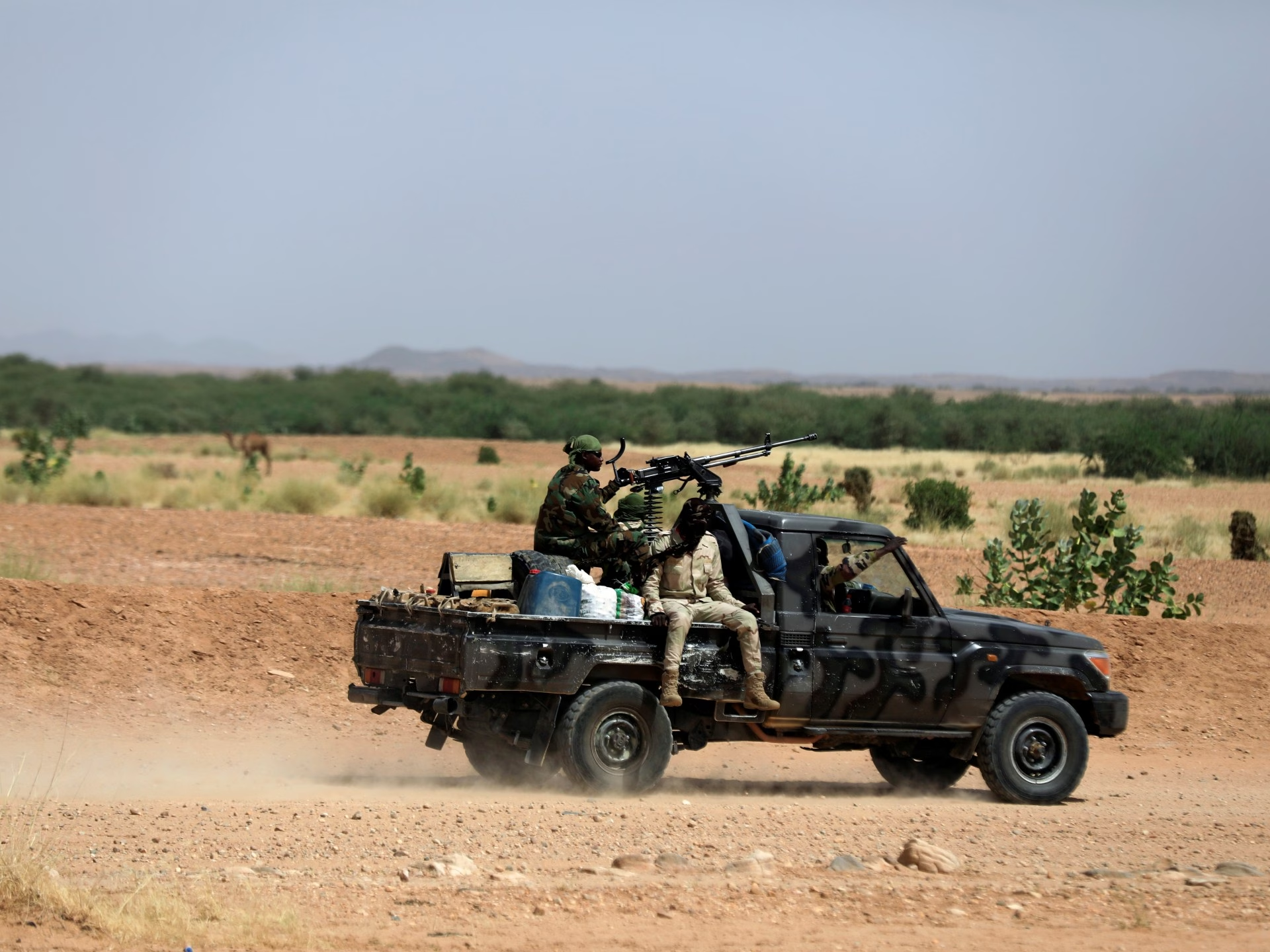The Islamic State in the Great Sahara, an affiliate of ISIL, has been blamed by authorities for the deadly attack in the town of Kokorou.
The Nigerian government has announced three days of mourning following an attack on a mosque in the southwest of the country, resulting in at least 44 fatalities.
The victims were killed during a violent armed assault in the Fambita quarter of the rural border town of Kokorou, according to a statement from the interior ministry broadcast on state television.
Additionally, 13 people were injured.
The Sahel region of West Africa has experienced an increase in violence due to the rise of armed fighters connected to al-Qaeda and ISIL groups, who have taken control of territory in northern Mali following the 2012 Tuareg rebellion.
This violence has spread to neighboring countries such as Niger and Burkina Faso, and more recently to the northern parts of coastal West African countries like Togo and Ghana.
The interior ministry stated that the attack took place early afternoon during a prayer service at the mosque during the holy month of Ramadan.
“The heavily armed terrorists surrounded the mosque to carry out their massacre with unusual cruelty,” the ministry said, adding that the attackers also set fire to a local market and homes.
The defense ministry attributed the attack to the Islamic State in the Great Sahara (EIGS), an affiliate of ISIL.
There was no immediate response from EIGS to the allegations. Previous attacks in Niger have been claimed by al-Qaeda affiliate groups.
The government has vowed to track down the perpetrators and bring them to justice.
The military government of Niger often clashes with armed groups in the region, and civilians frequently bear the brunt of the violence.
Since July 2023, at least 2,400 people have been killed in Niger, according to the ACLED database, which tracks armed conflict.
In the wider Sahel region, hundreds of thousands more have been killed, and millions displaced as armed groups target towns, villages, and government security outposts.
The failure of governments to restore security has contributed to coups in Mali, Burkina Faso, and Niger between 2020 and 2023. These countries remain under military rule despite regional and international pressure to hold elections.
Following the coups, authorities have turned away from traditional Western allies and sought military support from Russia instead.
The victims were killed during a violent armed assault in the Fambita quarter of the rural border town of Kokorou, according to a statement from the interior ministry broadcast on state television.
Additionally, 13 people were injured.
The Sahel region of West Africa has experienced an increase in violence due to the rise of armed fighters connected to al-Qaeda and ISIL groups, who have taken control of territory in northern Mali following the 2012 Tuareg rebellion.
This violence has spread to neighboring countries such as Niger and Burkina Faso, and more recently to the northern parts of coastal West African countries like Togo and Ghana.
The interior ministry stated that the attack took place early afternoon during a prayer service at the mosque during the holy month of Ramadan.
“The heavily armed terrorists surrounded the mosque to carry out their massacre with unusual cruelty,” the ministry said, adding that the attackers also set fire to a local market and homes.
The defense ministry attributed the attack to the Islamic State in the Great Sahara (EIGS), an affiliate of ISIL.
There was no immediate response from EIGS to the allegations. Previous attacks in Niger have been claimed by al-Qaeda affiliate groups.
The government has vowed to track down the perpetrators and bring them to justice.
The military government of Niger often clashes with armed groups in the region, and civilians frequently bear the brunt of the violence.
Since July 2023, at least 2,400 people have been killed in Niger, according to the ACLED database, which tracks armed conflict.
In the wider Sahel region, hundreds of thousands more have been killed, and millions displaced as armed groups target towns, villages, and government security outposts.
The failure of governments to restore security has contributed to coups in Mali, Burkina Faso, and Niger between 2020 and 2023. These countries remain under military rule despite regional and international pressure to hold elections.
Following the coups, authorities have turned away from traditional Western allies and sought military support from Russia instead.







